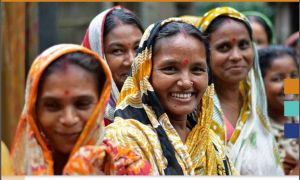Many development agencies are designing and implementing value chain interventions that aim to reach, benefit, and empower rural women.
Search
The CGIAR Research Program on Agriculture for Nutrition and Health (A4NH) is dedicated to the realization of Sustainable Development Goals 2 and 3, as coordinated by the United Nations and agreed to by member countries.
The overall goal of the three-year CAN program (2016–2019) was “Reducing malnutrition among children and women by facilitating efficient implementation of food and nutrition programmes, ensuring transparency, downward accountability and community
Despite encouraging progress on nutrition outcomes in the last decade, malnutrition continues to be a major challenge in India.
What is ANGeL? IFPRI designed an innovative research program called “Orienting Agriculture toward Improved Nutrition and Women’s Empowerment,” or the Agriculture, Nutrition, and Gender Linkages (ANGeL) Project.
Agriculture is closely linked to both the direct causes of undernutrition (e.g. diets, feeding practices, and health) and the underlying factors (e.g. income, education, access to water, sanitation, hygiene and health services, and equity).
A4NH flagship 3: Food safety
Food safety is moving rapidly up the development agenda as major new studies reveal its severely under-estimated importance.
Governments, businesses, and civil society groups increasingly realize the important need of supporting food systems to produce and supply diverse, nutritious, and safe foods for healthy lives.
Agriculture enhances access to food and improves livelihoods, but in some cases, may also be linked with increased risks of disease transmission.
Micronutrient deficiency affects approximately 2 billion people globally and is caused by poor-quality diets resulting in low intakes of key micronutrients.
For more than two decades, IFPRI’s research and policy analysis have been a resource for Bangladesh in making impressive strides in ensuring food security and reducing poverty.
Key collaborations between IFPRI and the Australian government.
HarvestPlus Crop Strategies
Biofortified sweet potatoes
Vitamin A deficiency affects over 140 million children under the age of five. In the absence of adequate amounts of vitamin A immune systems suffer irreversible damage and blindness occurs.
Biofortified wheat
In developing countries, particularly in South and West Asia, about half a billion people are iron deficient. In many of these same regions, wheat is considered a major staple food.
Biofortified cassava
An estimated 70 million people obtain more than 500 calories per day from cassava.


